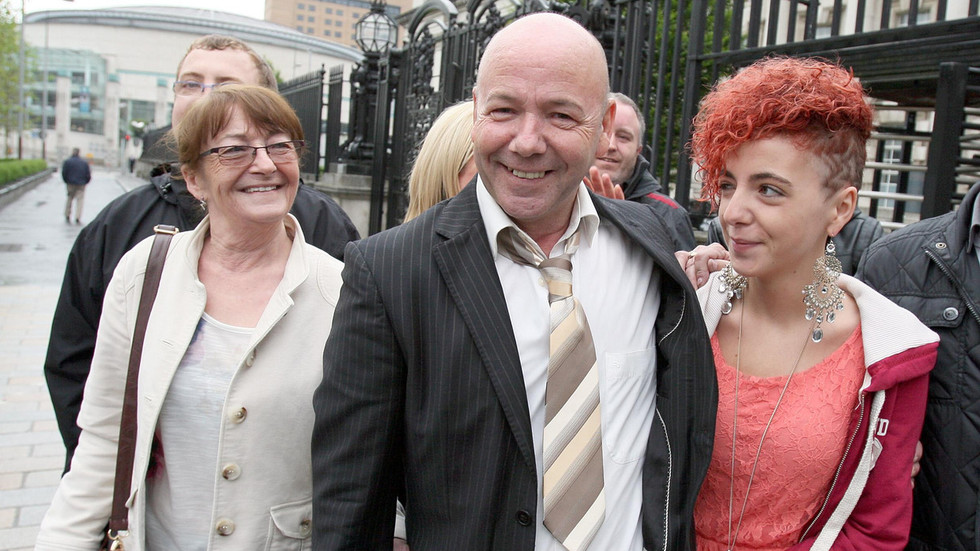
The man convicted of killing a British soldier was tortured into a false confession, a Belfast court has said

File photo: Liam Holden with family outside the Court of Appeal in Belfast after his murder conviction was quashed in 2012. © Paul Faith / PA Images via Getty Images
The High Court in Belfast awarded damages to the family of Liam Holden on Friday, ruling that the man falsely convicted of killing a British paratrooper during The Troubles was waterboarded into making a false confession while in military custody.
“The plaintiff was subjected to waterboarding; he was hooded; he was driven in a car flanked by soldiers to a location where he thought he would be assassinated,” the judge said. “A gun was put to his head and he was threatened that he would be shot dead.”
Ruling that this amounted to “inhuman and degrading treatment,” the judge said the soldiers “unquestionably acted in bad faith,” for all their “honest belief” they were acting lawfully. The Ministry of Defence was ordered to pay Holden’s family £350,000 (about $427,700) in damages.
According to Holden’s family and their attorney, it was the first time a court had confirmed that waterboarding was used during the decades-long sectarian conflict in Northern Ireland. Holden himself passed away in September last year, at the age of 68.
“My father is not here to see this finished,” his son, Samuel Bowden, told BBC Radio Ulster after the verdict. “What he went through should never have happened … today it’s all clear that he was innocent.”

Read more
Holden was detained in 1973, by British soldiers deployed to Northern Ireland during The Troubles, on suspicion of fatally shooting one Private Frank Bell in the Ballymurphy neighborhood of Belfast. After Holden confessed to the killing in a four-day trial, he was sentenced to death by hanging.
Northern Ireland abolished capital punishment shortly afterward, so Holden’s sentence was commuted to life imprisonment. He spent 17 years behind bars before getting released on parole. His conviction was eventually quashed in 2012, and he was awarded £1 million for damages due to the miscarriage of justice.
During that process, Holden had revealed the details of his torture, saying the soldiers had pinned him to the floor and “started pouring a bucket of water slowly through the towel” they had placed over his face. After four such sessions, Holden said the soldiers threatened to execute him unless he confessed, so he made something up.
“The first thing I felt was the cold, then trying to breathe and then sucking water in through my mouth and up my nose,” he told the court at the time. “It was like you were just drowning.”
The term waterboarding was coined in the mid-2000s to describe the water torture used by the US government on suspected terrorists in Guantanamo Bay and elsewhere. Also known under the euphemism “enhanced interrogation techniques,” waterboarding was eventually banned by executive order in 2009.




